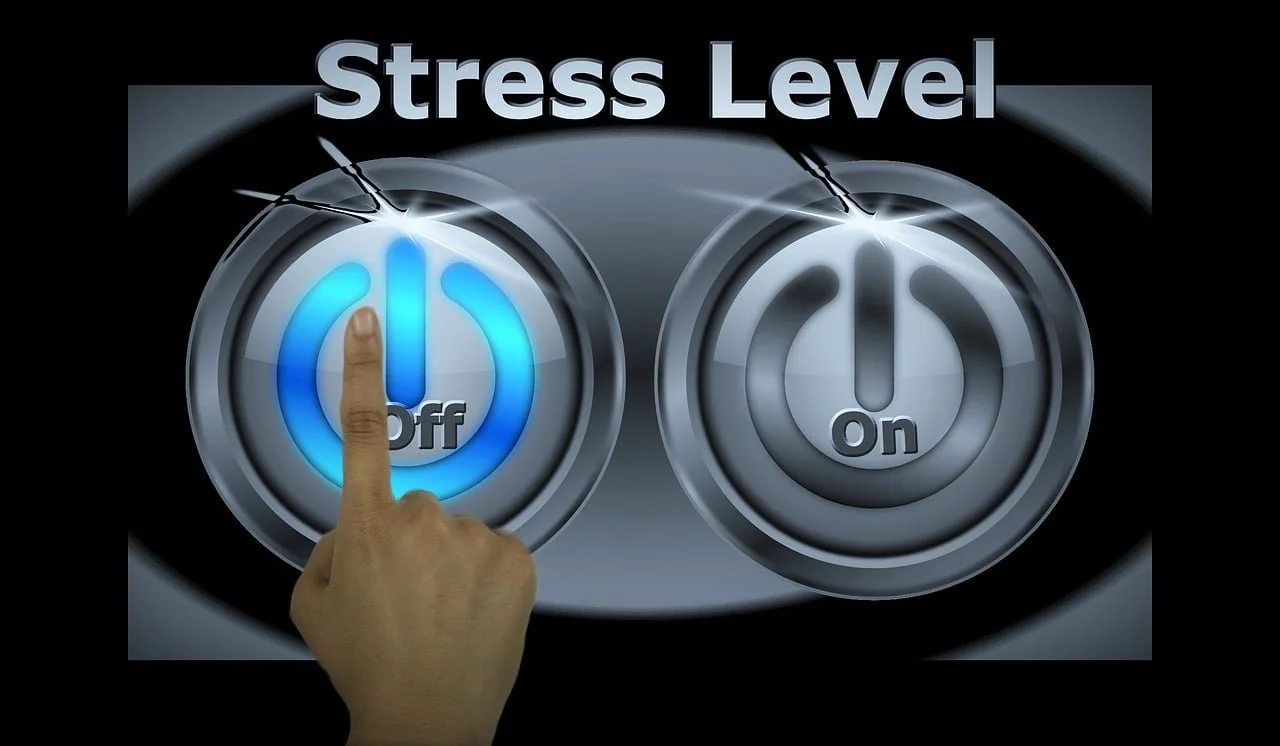In today’s fast-moving world, taking care of our mental and emotional health is really important. It is not just about feeling good—it's about dealing with stress, getting along well with others, and making smart decisions.
With more people facing mental health challenges these days, it’s crucial to know how to boost our mental and emotional well-being.
This blog offers key tips to help you out, and I hope you find it useful.
Understanding the Basics of Mental and Emotional Health
Mental and emotional health is all about how we think, feel, and connect with others. It plays a big role in our daily lives, affecting our mood and influencing how we handle stress and make decisions.
When our mental and emotional health is good, we can handle challenges better, build strong relationships, and lead a productive life.
Keeping mentally and emotionally healthy means more than just not being sad or anxious. It's about feeling capable and confident in handling the ups and downs of life. It's about feeling good about who you are, having good relationships, and feeling connected to the world around you.
By taking steps to improve your mental and emotional health, you can fully enjoy life, achieve your goals, and help others do the same. Even though it may seem challenging, improving mental well-being doesn’t have to be complicated.
There are many ways to maintain and improve your mental well-being. Some simple, practical activities include going for a walk, writing down things you are grateful for, spending time with family or friends, or doing something creative, like drawing or cooking.
Simple Daily Habits to Improve Your Mental Health
Improving your mental health doesn’t have to involve complicated strategies.
Small, daily habits can make a big difference in how you feel and function. Here are some easy-to-implement activities that can boost your mental well-being.
Start with a Morning Routine
How you start your day often sets the tone for the rest of it. Try to wake up at the same time each day and give yourself a calm start. This could be a few minutes of stretching, reading a chapter of a book, or enjoying a quiet cup of coffee. Avoid rushing into your day, as a hectic start can increase stress levels.
Mindfulness and Meditation
These practices help bring your focus back to the present, reducing stress and preventing overwhelming feelings. You can use apps for guided meditation or simply set aside a few minutes to focus on your breathing. Even short periods of meditation can lead to clearer thoughts and greater calm.
Get Moving
Physical activity is a powerful mood booster. It doesn’t need to be intense or time-consuming. A daily walk, a bit of gardening, or some at-home yoga can increase your endorphin levels. That will lift your spirits and reduce anxiety.
Eat Nourishing Foods
What you eat affects how you feel. Try to incorporate fruits, vegetables, lean proteins, and whole grains into your meals. These foods can improve energy levels and impact your mood positively. Try to avoid excessive caffeine or sugar, as they can lead to energy crashes and mood swings.
Stay Hydrated
Drinking enough water is surprisingly effective in maintaining good mental health. Since dehydration can lead to fatigue and moodiness, it’s a good idea to keep a bottle of water handy and sip throughout the day.
Connect Socially
Human connection is vital for mental health. Chatting with a friend or spending time with your loved one can provide emotional support and decrease feelings of loneliness.
Dedicate Time to Relax
It’s important to balance your productivity with relaxation. Each day, allow yourself some time to do something you enjoy without feeling guilty. Whether it’s watching a favorite TV show, knitting, or playing a game, this time helps recharge your mental batteries.
Get Enough Sleep
Getting enough sleep is crucial for both mental and emotional well-being. When you sleep well, your brain gets the chance to rest and recharge, helping to improve your mood and sharpen your thinking skills. Good sleep helps in managing stress, reducing anxiety, and even improving your memory. Aim for 7-9 hours of quality sleep each night to give your body the rest it needs to function at its best.
These habits are not only easy to implement but can also make a significant impact on your mental health. By integrating these small changes into your daily routine, you can create lasting improvements in your life.
To explore the power of habits in more depth, I highly recommend reading the book Atomic Habits by James Clear. He talks about how small changes can make a big difference over time.
James Clear explains that if you focus on making tiny improvements every day, they add up and lead to big changes. This idea can be especially useful for mental health. For example, adding just a few minutes of meditation to your routine each day can greatly improve how you feel over time.
He also suggests setting up your environment to support your new habits. For instance, if you want to go for a walk every day, you could keep your walking shoes by the door to remind you. Or staying hydrated, keep a water bottle nearby to remember to drink it throughout the day.
The book also gives you tips on how to keep going with your habits when you’re not feeling motivated or when things get tough. These tips can be really useful when you’re trying to keep up with habits that improve your mental health.
If you’re looking to make lasting changes to feel better every day, Atomic Habits is a great read. It gives you easy steps to follow to build good habits and break bad ones, which can make a big difference in how you feel.
How Your Physical Health Affects Your Mental State
Your physical health plays a big role in how you feel mentally and emotionally. When your body feels good, your mind often does too. For example, regular exercise helps release chemicals in your brain, like endorphins, that make you feel happier and more relaxed. Experts suggest aiming for 150 minutes of moderate exercise per week, which you can break down into 30-minute sessions over five days.
Even a simple activity like walking can boost your mood and reduce feelings of anxiety or depression.
Eating well is another important part of maintaining good mental health. Foods that are rich in vitamins, minerals, and antioxidants can protect your brain cells and improve brain function. Fish and flaxseeds, which have omega-3 fatty acids, are especially good for your brain and mood. On the other hand, too much sugar and fat can make you feel sluggish and have a negative impact on your mood.
Overall, taking care of your physical health supports your mental health. Simple things like eating right, exercising, and drinking enough water can make a big difference in how you feel every day.
The Importance of Relationships
Building and maintaining good relationships are crucial for our mental and emotional health. When we connect with others, whether they're friends, family, or even coworkers, we give ourselves a tremendous boost. Strong relationships provide us with support, help us feel loved and secure, and increase our sense of belonging and purpose.
Interacting with people can boost our happiness and reduce feelings of stress or anxiety. When we share our lives with others, we can process our feelings better and gain new perspectives that help us cope with challenges. Moreover, having supportive relationships means we have people we can trust when times get tough. These relationships can offer encouragement and advice, which are invaluable when we face life's ups and downs.
Spending quality time with loved ones can also enhance our self-esteem and confidence. Positive feedback and encouragement from people who care about us can make us feel valued and respected. This, in turn, helps us to view ourselves in a positive light and fosters a healthier self-image.
On the other hand, isolation and loneliness can have a negative impact on our mental health. People who lack strong social connections are at a higher risk of experiencing feelings of depression and anxiety. Therefore, it's important to make an effort to stay connected with others, even if it's just through a simple text message or a quick phone call.
To cultivate and maintain these important relationships, it’s helpful to communicate openly and regularly. Being there for others, just as they are for you, creates a mutual relationship of trust and care.
In summary, nurturing relationships not only enriches your life but also plays a significant role in supporting your mental and emotional well-being. So, invest time in your relationships—it’s worth it for your overall happiness and health.
Dealing with Stress and Anxiety
Stress and anxiety are common experiences for many people and managing them is crucial for maintaining good mental health. Here are some straightforward ways to handle stress and reduce anxiety in your daily life.
Stay Active: Regular exercise is one of the best ways to reduce stress. Activities like walking, jogging, yoga, or even dancing can help lower your body's stress hormones, like cortisol, and increase endorphins, which are chemicals in the brain that are natural painkillers and mood elevators.
Talk to Others: Sharing your thoughts and troubles with friends or family can make you feel less alone and more supported.
Develop a Routine: Having a daily routine can help you feel more in control and less anxious. Try to wake up, eat, and go to bed at the same times each day. Your entire body will benefit from it.
Limit Stimulants: Reduce your intake of substances such as caffeine, nicotine, and alcohol. While they might seem like they provide temporary relief, prolonged usage can increase feelings of anxiety and stress.
Try Relaxation Techniques: Practices like deep breathing, meditation, or gentle stretching can calm your mind. Engaging in these activities regularly can help you stay calm and clear in stressful situations. You might be interested in trying the Wim Hof breathing method, which I described in my previous post, here is the link: https://www.youtube.com/watch?v=tybOi4hjZFQ
Make Time for Yourself: Do something enjoyable every day, whether it's a hobby or just relaxing with a good book or your favorite music. This can be a great way to unwind and improve your mood.
Improving your mental and emotional health is a continuous journey. Each person’s journey will be unique, as what works for one individual may not work for another. It’s important to try different strategies and find what best suits your needs.
By understanding the basics, incorporating healthy habits into your day, connecting with others, and managing stress intelligently, you’re well on your way to a healthier and happier life.
Remember, even small changes can have a big impact.
Are you ready to start?
For more inspiration, consider reading the book Atomic Habits.
I wish you all the best!










